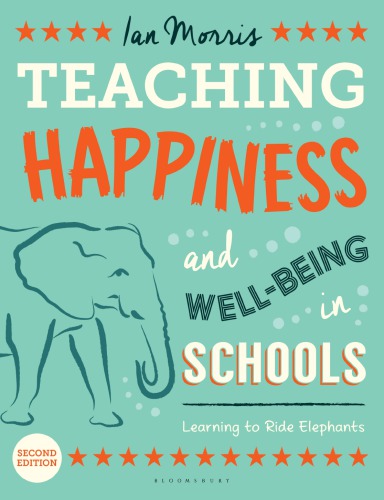

Most ebook files are in PDF format, so you can easily read them using various software such as Foxit Reader or directly on the Google Chrome browser.
Some ebook files are released by publishers in other formats such as .awz, .mobi, .epub, .fb2, etc. You may need to install specific software to read these formats on mobile/PC, such as Calibre.
Please read the tutorial at this link. https://ebooknice.com/page/post?id=faq
We offer FREE conversion to the popular formats you request; however, this may take some time. Therefore, right after payment, please email us, and we will try to provide the service as quickly as possible.
For some exceptional file formats or broken links (if any), please refrain from opening any disputes. Instead, email us first, and we will try to assist within a maximum of 6 hours.
EbookNice Team

Status:
Available0.0
0 reviews
ISBN 10: 1472917316
ISBN 13: 9781472917317
Author: Ian Morris
This updated edition is a theoretical and practical guide to implementing a well-being programme in your school. The book covers three areas: well-being as a philosophy of education, the teaching approach to well-being and the content that might form a well-being programme in a school. It is also a manifesto for a meaningful aim to education. There has recently been an explosion of interest in positive psychology and the teaching of well-being and 'happiness' in the PSHE world in schools and many teachers are looking for clear information on how to implement these potentially life-changing ideas in the classroom. This book provides an introduction to the theory of positive psychology and a practical guide on how to implement the theory in (primarily secondary) schools. It is written by Ian Morris who worked under Anthony Seldon at Wellington College which is well-known for its well-being and happiness curriculum.
Part 1 The foundations of happiness and well-being in education
1 The place of well-being and happiness in education
The instrumental view of education
Happiness in education
Eudaimonism: another way of coming down the stairs
The acquisition of virtue
Eudaimonism as a unifying language for schools
Which virtues?
Other approaches to well-being, happiness and eudaimonia
Care in education
2 Space for well-being
Education as happiness: how the curriculum contributes to eudaimonia
My World: Matthew Moss High School, Rochdale, UK
The International Baccalaureate Middle Years Programme
The relational in education
The emotional skills of teaching
Shame and pride
Restorative justice
Coaching
Applying restorative justice and coaching with colleagues
Part 2 Creating a curriculum for happiness and well-being
3 Preparing the ground
Making well-being different: avoiding health terrorism
Well-being and the curriculum
Well-being lessons: awareness; intervention; reflection
The experiential
4 Care of the body
Meeting the body’s needs
Eating well and virtue
Exercise
Sleep
Caring for our emotions
Primary emotion
Learning emotion
Secondary emotions
The brain and learning
Incontinence and executive function
5 Care of the mind
Resilience
The ABC
Thinking traps
Putting it in perspective: one of the PRP skills
Resilient learners
The mind diet
The philosopher’s mind
Getting started with teaching philosophy
The moral mind
Phronesis and the moral mind
Moral psycology
6 Care of others
Empathy
Listening and being present
Naïve realism and judgement
Kindness
Service
Trust
Gossip
Conflict resolution
Sex and relationships
7 Care of our passions
The rat catcher
Strengthspotting
Character strengths
Authenticity
A note on challenge
Flow
Impediment to our passions number 1: extrinsic motivation
Impediment to our passions number 2: the fixed mindset
8 Care of our place in the world
Consumerism and emotion
Ethical consumption
Habituation and the hedonic treadmill
Choice
Delaying gratification
Status anxiety
Technology and remembering our humanity
9 Mindfulness, spirituality and meaning
Mindfulness meditation
The evidence base for mindfulness
Mindfulness in schools
Spirituality
What is spirituality?
Spirituality and the child
Meaning making
10 The well-being of teachers
Individual and institutional vices and virtues
The virtues of teachers
Autonomy, flow and meaning
Perspective on pay and conditions
Learning from each other: coaching and Appreciative Inquiry
Notes
Bibliography
Index
the happiness and contentment workbook
teaching happiness in schools
teaching happiness and wellbeing in schools
happiness workbook pdf
happiness and education
happiness and contentment workbook
Tags: Ian Morris, happiness, schools